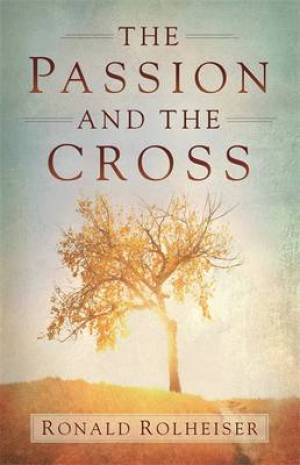The Passion and the Cross
'A pleasure to read Rolhesier's reflections on Gethsemane, the Cross and the Resurrection of Jesus, the Son of God'
 The Passion and the Cross
The Passion and the Cross
Ronald Rolhesier
Hodder & Stoughton
ISBN 978-1-473-62668-3
Reviewer: John Rackley
Ronald Rolhesier is a journalist and author of many books on Spirituality and the Human Condition. He is a post-Vatican ll Roman Catholic excited by scripture interpretation as a starting point for a faith in God. As a priest working especially in an order for the care of the poor, he is a down-to-earth practical theologian.
In this beautifully presented book which was a pleasure to hold he writes a series of reflections on Gethsemane, the Cross and the Resurrection of Jesus, the Son of God. I stress his orthodoxy because the content of the book is not what everyone would expect as material to be read in the final weeks of Lent. For each reflection embeds the experience of Jesus in the struggles and aspirations of any of us.
So he writes: our kitchen tables, our workplaces, our meeting rooms, and the streets we share with others – all are places where we daily experience in big and small ways, what Jesus felt in the Garden of Gethsemane; pain and anxiety over the isolation he is facing, about how he will be betrayed and abandoned by those who profess to love him.
Rolheiser blends the Incarnation into the Atonement. He acknowledges that the Cross is not easy to grasp intellectually and affirms that: the deeper things in life, love, fidelity, morality and faith are mysteries whose unfathomable depths always leave room for still more to be understood. This is shrewd explanation of the word ‘mystery’ when it is used about belief. A mystery is not a riddle. It is rather something we have some knowledge of and long to know more of.
So he does not deal in assertive declaration of certainties. Rather he offers the more enriching path of exploring what God waits to give to an open-minded faith. When we patiently stand with faith before the Cross it ceases to be a riddle and becomes a gift.
He believes that there are three clear meanings in the Cross. Firstly, quoting Rene Girard he agrees that the cross is ‘the single most revolutionary moral event in all of history’ and secondly that the Cross is the deepest revelation of God and finally it is the focus of the salvation of the world.
He brings them together in one of his more lyrical passages where he is considering the torn curtain of the temple:
The death of Jesus helps us to see into the ‘holy of holies, the inner heart of God. The cross is a prism that refracts God’s moral interior. God is utterly non-violent - and he goes on to explain that it is God’s vulnerability that creates a pathway into an intimacy which heals us by the life-blood of Christ.
It is unfortunate that the title of the book suggests that there is no reference to the Resurrection. This is far from the case. The Resurrection is to be lived now and expected in our life-time. It is not an end but a continuing of God has begun in us and for us.
He tells of an Easter card which simply said: May you leave behind you a string of empty tombs and comments:
We need regular resurrections. Given any chance life wins out, brokenness heals, bitterness melts, new seeds form and life bursts forth from what once appeared to be dead. Crucifixions, bitterness, and winters will come, but spring and resurrections are arsonists both of them.
I will not wait for another Lent to read this book again.
Baptist Times, 08/07/2016